Cape Cod Times
Posted Jan 2, 2019 at 8:09 PM
Updated Jan 3, 2019 at 6:28 AM
Easing of Barnstable’s nitrogen rules could prompt lawsuit
Conservation group may press for mandates if town revises water quality plan.
HYANNIS — If the Barnstable Board of Health rescinds any of the town’s decade-old interim regulations to restrict nitrogen flow into saltwater estuaries later this month, it could trigger a federal lawsuit from the Conservation Law Foundation.
“It was a real shock to me,” Christopher Kilian, the foundation’s vice president of strategic litigation, said of efforts underway to modify the interim regulations.
A foundation lawsuit against the U.S. Environmental Protection Agency in 2011 was the force behind mandated creation of the Cape’s Section 208 regional water-quality management plan.
“If we need to go back to federal court to point out flaws in the 208 plan and use examples of towns dropping the ball to underscore need for a federal program, we will,” Kilian said.
The interim regulations, which affect most of the town south of Route 6, were put in place 10 years ago to restrict nitrogen flow into estuaries by limiting development in certain areas. They were put in place temporarily until the town developed and adopted a comprehensive plan to address nitrogen reduction in its estuary systems.
A proposed amendment to rescind the regulations that would exclude the Craigville Beach Zoning District — designated a District of Critical Planning Concern by the Cape Cod Commission — was introduced in the fall.
“I have to admit the notion that Barnstable, of all towns, would take a giant step backward now wasn’t really in our calculus,” Kilian said. “This would just add additional concern and impetus for us to press harder for state and federal mandated programs. We have not seen consistent resolve or effective action from towns on the Cape.”
Hesitancy by the state and the Cape Cod Commission to wade into local politics to ensure the Section 208 plan is carried out has led to inaction by some Cape towns, according to Kilian.
More than 150 people attended a hearing in late November when the Board of Health took up the proposed amendment, with many offering their views during a two-hour comment period.
Barnstable Town Manager Mark Ells also addressed the board. He said the town had enacted many water resources management initiatives in the past decade, and he advocated easing the regulations for a 500-foot buffer along Route 28 in town to pursue housing development opportunities.
The hearing was continued to Jan. 22.
“I’ve been asking since December 2017 to revisit and discuss the regulations,” Ells told the Times. “We want to balance natural resource protection, economic development and housing with a focus along the Route 28 corridor.”
Local environmental organizations, including the Association to Preserve Cape Cod and the Barnstable Clean Water Coalition, oppose the proposed amendment, contending the town still does not have a comprehensive plan — or funding to enforce one — that would be a catalyst for reconsidering the interim regulations.
Ells is scheduled to present an update on the town’s wastewater management plan at the Barnstable Town Council meeting Thursday night, according to a published agenda.
“This is emblematic and an example of the challenge on the Cape now,” Kilian said. “Badly degraded water quality is well-documented, and we know the sources. In the meantime, there’s a pressure to continue building stuff and not use updated systems to keep nitrogen out of the bays.”
Kilian also warned that the quality of the Cape’s waterways is fundamental to property values and the region’s economy and towns should not contribute to “killing the goose that lays the golden egg.”
Wendy Northcross, CEO of the Cape Cod Chamber of Commerce, said Barnstable was between a “proverbial rock and a hard place” and saw both sides of the issue.
“Our organization works very closely with Barnstable as a gateway city,” she said. “Economic development is important to them for housing and a commercial tax base, but without proper wastewater infrastructure, economic development capacity is stymied.”
The chamber will continue to work with Barnstable to help get wastewater projects initiated and funded, according to Northcross.
“I’m sure they don’t want to invite a lawsuit, but I know they have really been working to balance economic development and water protection,” said Northcross, adding that perhaps projects could be evaluated on a case-by-case basis, especially if a developer wanted to build its own small wastewater treatment infrastructure. “It’s a delicate stance.”
Ells said he was not aware of a looming lawsuit if the town modified or lifted some or all of its interim estuary protection regulations.
“He (Kilian) has not spoken to my office at all,” Ells said. “This is the first I’ve heard about it. He’s an attorney, so I’d refer him to our legal counsel.”
Cape Cod Times – Easing of Barnstable’s nitrogen rules could prompt lawsuit
